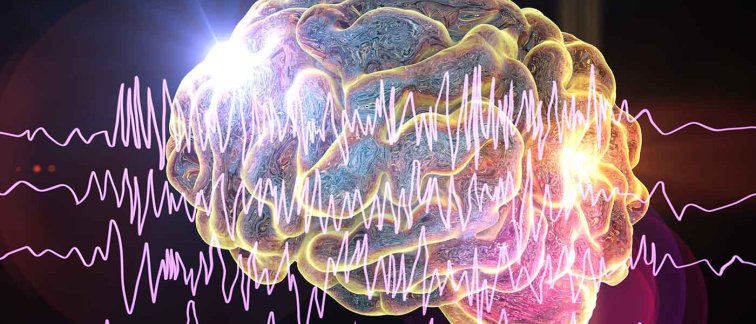“This project could only be successful through extensive collaboration among the participating hospitals. Epilepsy-like brain activity after CPR is not very common, so it took a long time to include the necessary patients and collect data. Amsterdam UMC was an important study center," says Janneke Horn, neurologist-intensivist at Amsterdam UMC. Good cooperation between the clinical neurophysiology department with Fleur van Rootselaar and Marjolein Admiraal and the intensive care unit was crucial.
Brain activity in coma patients
About 5000 patients in The Netherlands need a stay at the intensive care unit, after cardiac arrest and resuscitation. They are in a coma then. The cardiac arrest, by then, may have damaged the brain to such an extent that half of the patients will not recover from coma. The other half will also have permanent damage, for example of the memory functions. Predicting if a patient will get awake and what his or her prospects will be, is a huge challenge. One of the instruments used for this is continuous evaluation of the brain signals using EEG (electroencephalography).
Unclear whether medicines help
The EEG shows signs of epilepsy: not like an attack, but like continuous activity. It is known that this type of brain activity points to serious brain damage with bad prospects. For a long time, it was unclear if anti-epileptic medication would help improve the outcome. This resulted in one doctor prescribing the medication, while another didn’t. From a large study in 11 medical centers in The Netherlands and Belgium, among 172 patients between 2014 and 2021, the conclusion is now that anti-epileptic medication does not give better recovery. The adverse effect is that patients need to stay longer at the ICU: for the patient an undesired situation, and it puts extra pressure on the health care system.
Can be useful in a small group
Apart from these continuous epileptic signals, a small group of patients show signs of a typical epileptic seizure: not continuous signals, but a short and heavy attack. Anti-epileptics could help in these situations, but this still needs further research. The results from the study that is now published, are essential for decision making at the ICU and can take away part of the uncertainties the family of the patient has to deal with.
The study is called TELSTAR: treatment of electroencephalographic status epilepticus after cardiopulmonary resuscitation. The research was made possible thanks to a grant from EpilepsieNL (the new name of Epilepsy Fund and Epilepsy Association Netherlands since 2021).
The research was realized thanks to intensive collaboration with the following hospitals: Rijnstate Hospital, Medisch Spectrum Twente, Radboud UMC, St. Antonius Hospital Nieuwegein, Amsterdam UMC, UMC Groningen, VieCuri Medical Center, Maastricht UMC, Maasstad Hospital, Canisius Wilhelmina Hospital and Erasmus University Hospital, Brussels.
Read the publication in The New England Journal of Medicine: Treating Rhythmic and Periodic EEG Patterns in Comatose Survivors of Cardiac Arrest
Source: University of Twente

